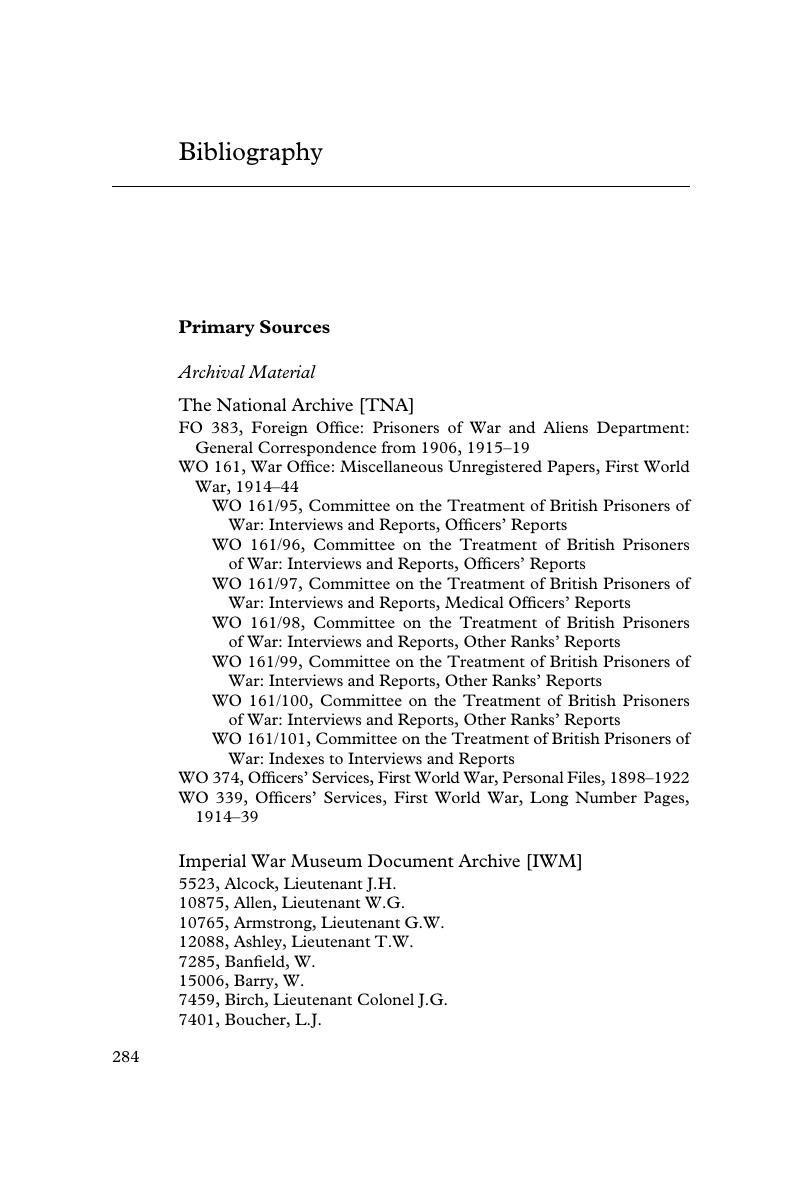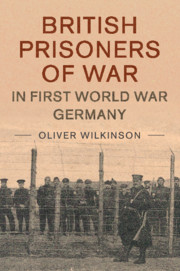Book contents
- British Prisoners of War in First World War Germany
- Studies in the Social and Cultural History of Modern Warfare
- British Prisoners of War in First World War Germany
- Copyright page
- Dedication
- Contents
- Illustrations
- Acknowledgements
- Abbreviations
- Introduction
- Part I Behind the Wire
- Part II Prisoner Responses
- Part III Conclusion
- Bibliography
- Index
- References
Bibliography
Published online by Cambridge University Press: 04 July 2017
- British Prisoners of War in First World War Germany
- Studies in the Social and Cultural History of Modern Warfare
- British Prisoners of War in First World War Germany
- Copyright page
- Dedication
- Contents
- Illustrations
- Acknowledgements
- Abbreviations
- Introduction
- Part I Behind the Wire
- Part II Prisoner Responses
- Part III Conclusion
- Bibliography
- Index
- References
Summary

- Type
- Chapter
- Information
- British Prisoners of War in First World War Germany , pp. 284 - 301Publisher: Cambridge University PressPrint publication year: 2017



